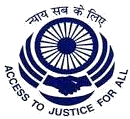Legal Aid, Legal Service and Legal Literacy under the Legal Services Authority Act of 1987
The Act mandates the establishment of legal aid clinics, legal aid cells, and other institutions to provide legal aid services to the marginalized and disadvantaged sections of society
The Legal Services Authority Act of 1987 also enshrines the principle of equal justice and prohibits discrimination on the basis of gender, race, caste, religion, or language.
The Legal Services Authority Act of 1987 is a crucial step in ensuring that the legal system is accessible and equitable for all.
The appalling requirement of free legal aid for legal awareness the Chhattisgarh State Legal Service Authority Bilaspur is providing legal aid to various targeted identified groups such as Members of schedule caste, schedule tribes, backward classes, children, under trial prisoners, senior citizens etc.
Who is eligible to get free legal aid?
According to section 12 of Legal service authority act 1987, Every person who has to file or defend a case shall be entitled to legal services under this Act if that person is –
- Members of Scheduled Castes and Scheduled Tribes.
- People who are victims of immoral atrocities or those who are forced to do forced labour. Women and children.
- Dependents of martyred soldiers and persons persecuted under conditions of unexpected deprivation such as multiple destruction, caste violence, caste atrocities, flood, drought, earthquake or industrial destruction.
- Industrial workers/workers senior citizens Persons kept in custody in a prison, children’s communication home, juvenile psychiatric hospital or psychiatric nursing home,
- All such persons whose annual income is less than one and a half lakh (Rs. 1,50,000/-),
- Third gender
- Persons suffering from HIV/Cancer.
What is Legal Services?
Legal services are provided in pending cases before all courts /authorities /tribunals /commission. For the economically weaker sections of the society and scheduled castes/tribes, women, children, who are eligible to get free legal service assistance, court fees, lawyer’s appointment fees and other necessary litigation expenses like typing, copy of documents, process fees, witness expenses etc. are borne by the Authority. In Lok Adalat and Counseling and Reconciliation Centers, continuous efforts are made by the negotiation team to end the family disputes on the basis of consultation agreement. Efforts are being made to empower the weaker sections of the society by organizing legal literacy camps.
Legal Aid is multifaceted and has two main dimensions first of which is conventional approach that is a providing free legal assistance to poor litigants and the second is preventive Legal Aid services program which is significant in developing countries like India where there is appalling poverty ignorance and a literacy and the people are made aware of their right and ways to enforce them.


